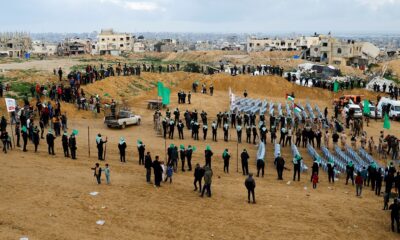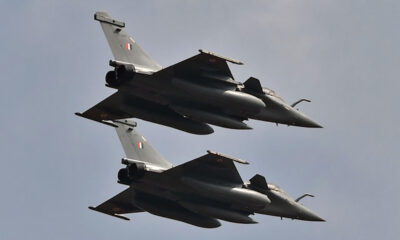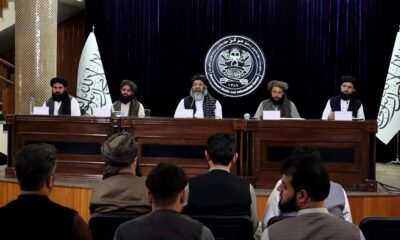World
Death toll from Syria-Turkey quake nears 10,000

Families in southern Turkey and Syria spent a second night in the freezing cold on Wednesday as overwhelmed rescuers raced to pull people from the rubble two days after a massive earthquake that killed more than 9,600 people.
In Turkey, dozens of bodies, some covered in blankets and sheets and others in body bags, were lined up on the ground outside a hospital in Hatay province.
Many in the disaster zone had slept their cars or in the streets under blankets, fearful of going back into buildings shaken by the 7.8 magnitude tremor – already Turkey’s deadliest since 1999 – that hit in the early hours of Monday.
Rescuers there and in neighbouring Syria warned that the death toll would keep rising as some survivors said help had yet to arrive.
“Where are the tents, where are food trucks?” said Melek, 64, in the southern Turkish city of Antakya, adding that she had not seen any rescue teams.
“We haven’t seen any food distribution here, unlike previous disasters in our country. We survived the earthquake, but we will die here due to hunger or cold here.”
With the scale of the disaster becoming ever more apparent, the death toll rose above 7,100 in Turkey. In Syria, already devastated by 11 years of war, the confirmed toll climbed to more than 2,500 overnight, according to the Syrian government and a rescue service operating in the rebel-held northwest.
Turkish President Tayyip Erdogan has declared a state of emergency in 10 provinces. But residents in several damaged Turkish cities have voiced anger and despair at what they said was a slow and inadequate response by the authorities.
Erdogan, facing a close-fought election in May, is expected to visit some of the affected areas on Wednesday.
The initial quake, followed hours later by a second one almost as powerful, struck just after 4 a.m. on Monday, giving the sleeping population little chance to react.
It toppled thousands of buildings including hospitals, schools and apartment blocks, injured tens of thousands, and left countless people homeless in Turkey and northern Syria.
Turkish authorities say some 13.5 million people were affected in an area spanning roughly 450 km from Adana in the west to Diyarbakir in the east – broader than the distance between Boston and Philadelphia, or Amsterdam and Paris.
In Syria, it killed people as far south as Hama, some 100km from the epicentre.
Turkey’s disaster management agency said the number of injured was above 38,000.
In the town of Jandaris in northern Syria, rescue workers and residents said dozens of buildings had collapsed.
Standing around the wreckage of what had been a 32-apartment building, relatives of people who had lived there said they had seen no one removed alive. A lack of heavy equipment to remove large concrete slabs was impeding rescue efforts.
Rescue workers have struggled to reach some of the worst-hit areas, held back by destroyed roads, poor weather and a lack of resources and heavy equipment. Some areas are without fuel and electricity.
Aid officials voiced particular concern about the situation in Syria, where humanitarian needs were already greater than at any point since the eruption of a conflict that has partitioned the nation and is complicating relief efforts.
The head of the World Health Organization has said the rescue efforts face a race against time, with the chances of finding survivors alive slipping away with every minute and hour.
In Syria, a rescue service operating in the insurgent-held northwest said the number of dead had climbed to more than 1,280 and more than 2,600 were injured.
“The number is expected to rise significantly due to the presence of hundreds of families under the rubble, more than 50 hours after the earthquake,” the rescue service said on Twitter.
Overnight, the Syrian health minister said the number of dead in government-held areas rose to 1,250, the state-run al-Ikhbariya news outlet reported on its Telegram feed. The number of wounded was 2,054, he said.
Turkey’s deadliest earthquake in a generation has handed Erdogan a huge rescue and reconstruction challenge, which will overshadow the run-up to the May elections already set to be the toughest of his two decades in power.
The vote, too close to call according to polls before the quake, will determine how Turkey is governed, where its economy is headed and what role the regional power and NATO member may play to ease conflict in Ukraine and the Middle East.
World
Hamas in talks with US about Gaza ceasefire and aid, says senior Palestinian official
The U.S. had previously held discussions with the Palestinian militant group on securing the release of U.S. hostages held in Gaza, read the report.
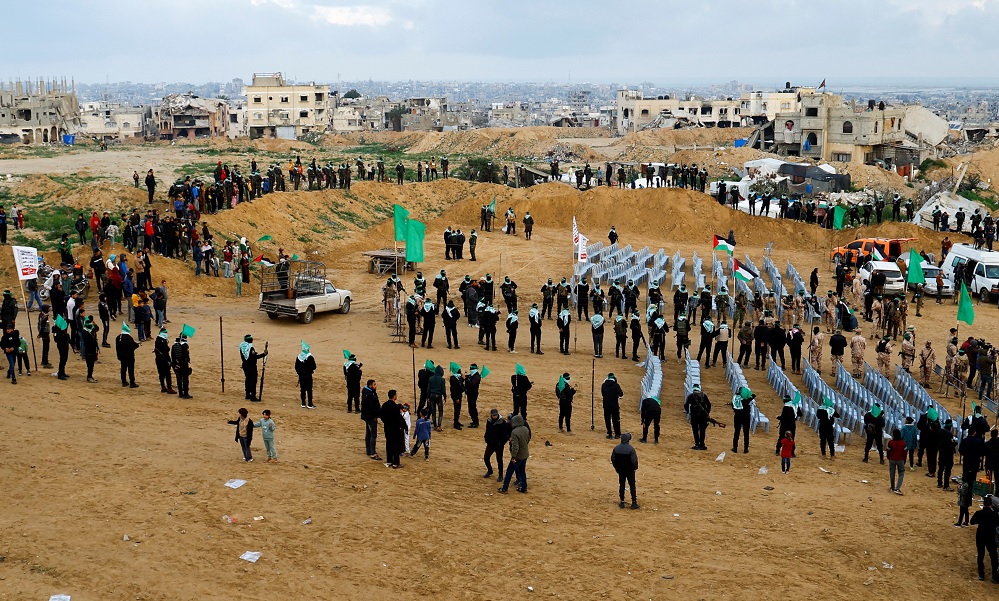
Talks between Hamas and the U.S. administration on a ceasefire in Gaza and the entry of humanitarian aid to the besieged enclave are underway, a senior Palestinian official familiar with the discussions told Reuters on Sunday.
U.S. President Donald Trump recently repeated a pledge to help get food to Palestinians in Gaza. A U.S.-backed mechanism for getting aid into Gaza should take effect soon, Washington’s envoy to Israel also said on Friday.
A State Department spokesperson said: “We cannot speak to ongoing negotiations, but I will note recent statements by Qatar and Egypt that they are continuing to engage in pursuit of an agreement.”
The spokesperson said that Hamas bore sole responsibility for the war as well as for the resumption of hostilities.
“President Trump has made clear the consequences Hamas will face if it continues to hold the hostages, including American Edan Alexander and the bodies of four Americans,” the spokesperson added.
The U.S. had previously held discussions with the Palestinian militant group on securing the release of U.S. hostages held in Gaza, read the report.
Israeli media reported on Sunday that Prime Minister Benjamin Netanyahu had told a closed session of the Foreign Affairs and Defense Committee that Hamas could soon release Alexander, an American-Israeli hostage, as a goodwill gesture towards Trump, who will visit this Middle East this week.
The prime minister’s office did not immediately respond to a request for comment on the reports.
Since March 2, Israel has cut off all supplies to the 2.3 million residents of Gaza, and food stockpiled during a ceasefire at the start of the year has all but run out.
On March 18, Israel effectively ended the January ceasefire agreement with Hamas and renewed its military campaign in Gaza, Reuters reported.
Hamas has said it is willing to free all remaining hostages seized by its gunmen in attacks on communities in southern Israel on October 7, 2023, and agree to a permanent ceasefire if Israel pulls out completely from Gaza.
Israel, vowing the war can only stop once Hamas is stamped out, has said it plans to expand its military campaign in Gaza, which has been devastated during the war and prompted warnings from the U.N. that the population faces imminent famine.
The October 2023 Hamas attacks killed 1,200 people, and 251 were taken hostage back to Gaza, according to Israeli tallies. Israel’s campaign has killed more than 52,800 Palestinians, mostly civilians, according to Hamas-run health authorities.
World
Trump says India, Pakistan agree to ‘full and immediate ceasefire’

U.S. President Donald Trump said on Saturday that India and Pakistan had agreed to a “full and immediate ceasefire” after a fourth day of strikes and counter-strikes against each other’s military installations.
Pakistan’s foreign minister also said both countries had agreed to a ceasefire “with immediate effect” and India’s foreign ministry said it would start at 5 p.m. Indian time (1130 GMT).
“After a long night of talks mediated by the United States, I am pleased to announce that India and Pakistan have agreed to a FULL AND IMMEDIATE CEASEFIRE. Congratulations to both Countries on using Common Sense and Great Intelligence,” Trump said in a post on Truth Social.
The sudden announcement came on a day when fears spiked that the countries’ nuclear arsenals might come into play as Pakistan’s military said a top military and civilian body overseeing its nuclear weapons would meet.
But Pakistan’s defence minister later said no such meeting was scheduled.
At the same time, officials from both sides showed a willingness to take a step back following the day’s exchanges, as the combined civilian death toll on the two sides rose to 66.
“Pakistan and India have agreed to a ceasefire with immediate effect,” Pakistani Foreign minister Ishaq Dar posted on X. “Pakistan has always strived for peace and security in the region, without compromising on its sovereignty and territorial integrity!”
India’s foreign ministry said that the head of Pakistan’s military operations called his Indian counterpart on Saturday afternoon and it was agreed that both sides would stop all firing.
The two heads will speak to each other again on May 12, the ministry added.
The fighting began on Wednesday when India carried out strikes on what it said was “terrorist infrastructure” in Pakistani Kashmir and Pakistan, two weeks after 26 people were killed in an attack on Hindu tourists in Indian Kashmir.
Pakistan denied India’s accusations that it was involved in the tourist attack. Since Wednesday, the two countries have exchanged cross-border fire and shelling, and sent drones and missiles into each other’s airspace.
The countries have been locked in a dispute over Kashmir since they were born after the end of British colonial rule in 1947. Hindu-majority India and Islamic Pakistan both claim Kashmir in full but rule it in part.
They have gone to war three times since, including twice over Kashmir, and clashed several times.
India blames Pakistan for an insurgency in its part of Kashmir that began in 1989 and has killed tens of thousands. It also blames Pakistani Islamist militant groups for attacks elsewhere in India.
Pakistan rejects both charges. It says it only provides moral, political and diplomatic support to Kashmiri separatists.
(Reuters)
World
US offers to help India and Pakistan start talks, G7 also urges dialogue
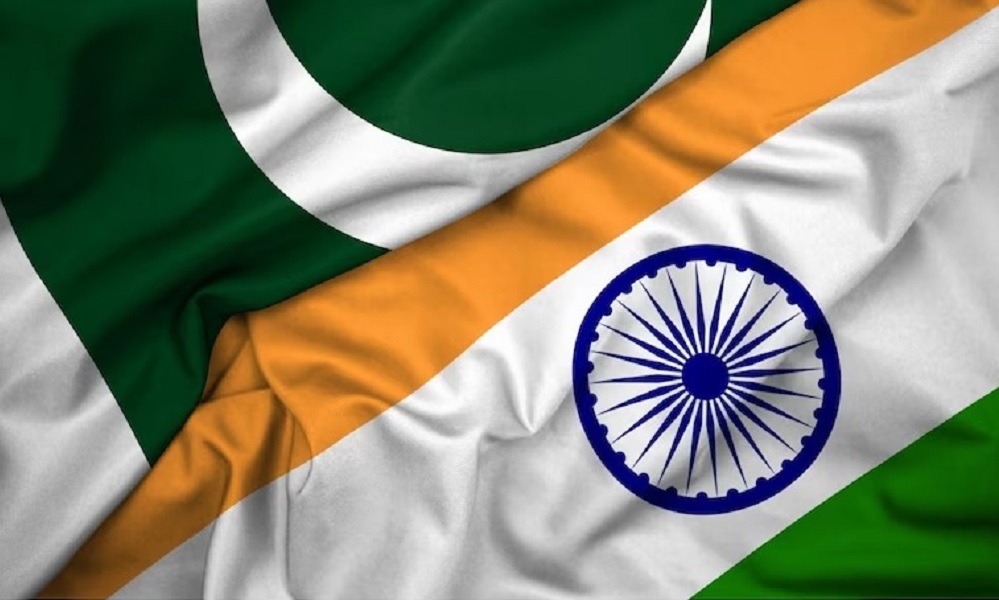
The U.S. government said it offered assistance to make India and Pakistan start “constructive talks” while the Group of Seven (G7) major countries also urged the Asian neighbors to engage in direct dialogue amid heightened hostilities.
World powers have raised the alarm over the latest escalation in the decades-old India-Pakistan rivalry. India hit Pakistan with air strikes and missiles on Wednesday and since then the nuclear-armed countries have been clashing daily while launching strikes against each other’s military installations on Saturday. Dozens have been killed.
The U.S., especially Secretary of State Marco Rubio, has held regular talks with both India and Pakistan since late April and urged them to de-escalate.
The U.S. State Department late on Friday and early Saturday released three statements on Rubio’s calls with Pakistan Army Chief Asim Munir, and the foreign ministers of India and Pakistan.
It said Rubio urged them to “re-establish direct communication to avoid miscalculation” while offering U.S. assistance “in starting constructive talks” to avoid future conflicts.
Michael Kugelman, a Washington-based South Asia analyst and writer for the Foreign Policy magazine, said Rubio’s decision to call the army chief directly was “the most consequential move the U.S. has made” since the start of the crisis:
“If you want to talk to the Pakistanis about de-escalation, you need to talk to General Munir.”
President Donald Trump said earlier this week the rising tensions were a shame. U.S. Vice President JD Vance said a war would be “none of our business.”
In recent years, India has been seen as a partner by Western powers to counter China’s rising influence. Pakistan is a U.S. ally although its importance has diminished since Washington’s 2021 withdrawal from neighboring Afghanistan.
In a G7 statement, the foreign ministers of Canada, France, Germany, Italy, Japan, the U.S., Britain and the European Union said they “strongly condemn” an April 22 Islamist militant attack in which 26 people were killed in India-administered Kashmir. India blamed Pakistan, which denied the accusations and called for a neutral probe.
“We call for immediate de-escalation and encourage both countries to engage in direct dialogue towards a peaceful outcome,” the G7 top diplomats said.
Muslim-majority Kashmir is claimed in full but ruled only in part by both Hindu-majority India and Islamic Pakistan and has seen wars, insurgency and diplomatic stand-offs over the decades.
(Reuters)
-

 Regional5 days ago
Regional5 days agoAt least 26 civilians killed in Indian strikes on Pakistan: Islamabad
-

 Latest News5 days ago
Latest News5 days agoIslamic Emirate of Afghanistan ‘concerned’ over rising tensions between Pakistan and India
-
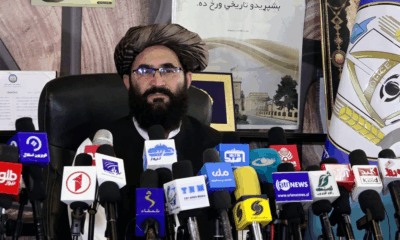
 Latest News5 days ago
Latest News5 days agoPassport Directorate earns nearly 13 billion AFN in one year
-
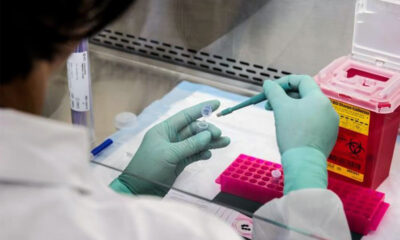
 Health5 days ago
Health5 days agoWHO confirms second Polio case in Afghanistan
-

 Regional4 days ago
Regional4 days agoIndia dismisses report of Pakistan downing jets as “disinformation”
-

 Latest News5 days ago
Latest News5 days agoUNAMA seeks over $400 million to support returnees to Afghanistan in 2025
-
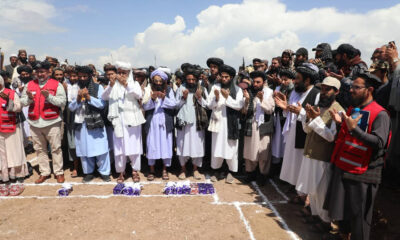
 Latest News5 days ago
Latest News5 days agoNew residential township for Afghan returnees to be built in Paktia Province
-

 Sport4 days ago
Sport4 days agoAriana Television to broadcast 4th edition of Afghanistan Futsal Premier League


